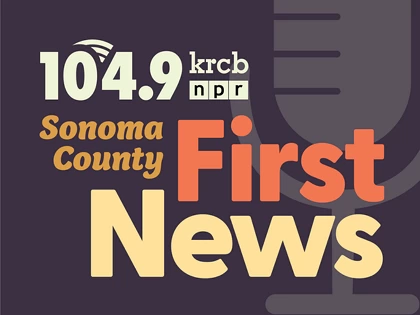 Rep. Pelosi speaking at Friday's event.
Rep. Pelosi speaking at Friday's event. photo credit: Noah Abrams/KRCB
California is asking for federal disaster assistance for salmon fishermen and women affected by this season’s complete closure. Northern California politicians are calling for support for the crews.
Pier 47 in San Francisco was the site Friday, April 7th, of a press conference bringing attention to the financial hit coming for the Bodega Bay commercial salmon fishing fleet and the many other West Coast fishers.
North Coast Congressman Jared Huffman gathered along with San Francisco representatives Nancy Pelosi and Kevin Mullen, and a number of salmon industry representatives.
"We're here to talk about the immediate needs of the fishing community," Huffman said. "They're going to need our help, but we're also going to talk about the longer term need to save our salmon and to make sure that they don't go extinct on our watch. To make sure that these working waterfronts can continue to support fishing men and women, and restaurants, and charters, and everything else that is part of the fishing economy for generations to come."
Another group deeply affected by the across-the-board-closure: California’s tribal communities.
Huffman said a dialogue between tribal and federal authorities will be necessary to meet ceremonial needs. Representative Pelosi agreed.
"That's a very high priority for us," Pelosi said. "The fisheries are so essential to culture, sustenance, livelihood and the rest for the tribes."
Fisherman Larry Collins said this year’s closure is the latest blow for the declining industry.
"My wife and I started fishing in 1984," Collins said. "At that point, there was 4,700 salmon permits in California. Now there's about 400 guys that fish salmon commercially."
Andy Giuliano, owner of Fish Emeryville, where crews offload their catch, said this year will be devastating to the already hard hit industry.
"Much like Covid, there will not be people who make it to the end of this disaster," Giuliano said.
Salmon fishermen and women say water intensive agriculture like almond orchards in the Central Valley have exacerbated previous years’ drought and lowered river levels to the detriment of the fish.

 Live Radio
Live Radio




